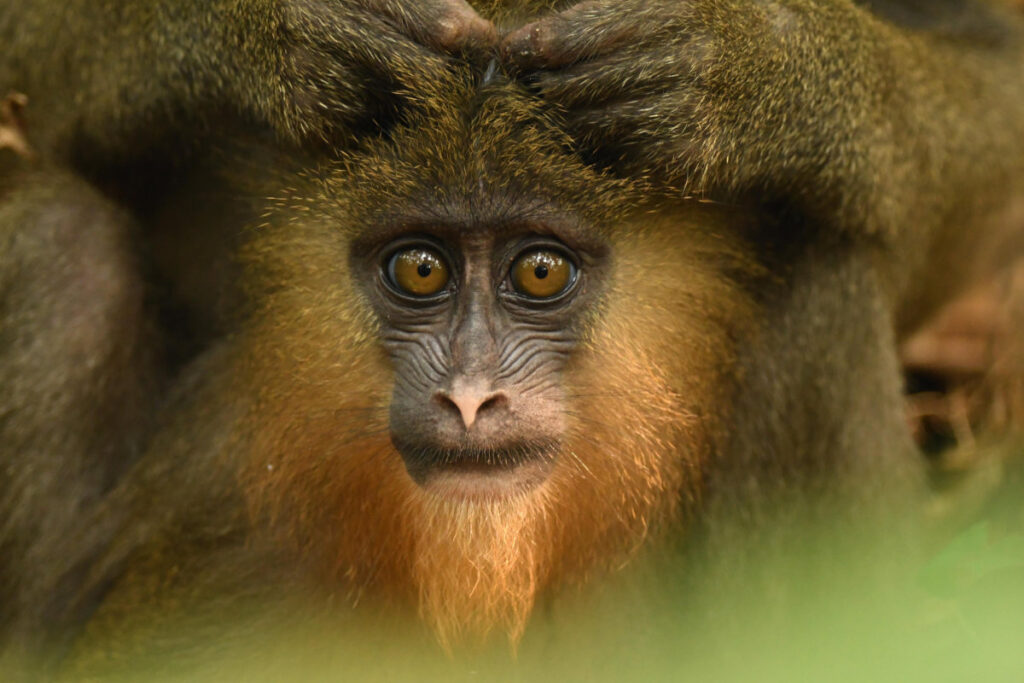[LUM#22] Animal Intelligence
The mechanisms of animal perception remain a mystery, and studying them sometimes comes at the expense of the subjects' well-being. What if artificial intelligence allowed us to model this perception in order to study it in silico? This is the hypothesis put forward by Julien Renoult, a researcher at the Center for Functional and Evolutionary Ecology1, is testing with mandrills as part of the Wildcom AI.

Favoring family members, or giving them a "leg up," as they say, is not unique to humans. Nepotism is a practice observed in many animal species, including mandrills, primates that live in matriarchal societies centered around mothers. "We see a stronger bond between paternal half-sisters than between those who share the same mother," explains Julien Renoult, a researcher at CEFE. This observation is surprising because in this species, males wander between groups, engaging in clandestine mating. So how can mandrills have such a detailed understanding of their paternal kinship? (Mandrill mothers associate with infants who look like their own offspring using phenotype matching, in eLife science, November 2022).
Under the monkey skin
The hypothesis of kinship recognition based on facial resemblance seems the most obvious, but it has never been quantified despite numerous experiments, as the ecologist explains. "We defined characteristics by hand, measuring the distance between the eyes, etc. These are simplistic criteria that are accessible to our consciousness but do not represent the reality of how our brain processes information..." And even less so by the brain of a mandrill.
Determined to discover what goes on beneath monkey skin without having to touch it, the researcher had an idea: train AI to learn how to process information, based on the model of these primates' brains. "When we train AI to recognize images that we humans find similar as similar, it creates a representation space that correlates with ours. For example, it will fall victim to the same optical illusions as we do, " explains Julien Renoult. "AI capable of predicting the resemblance perceived by mandrills will therefore reproduce the encoding mode of this species." Provided it is trained to do so...
Black box
It was in Gabon that Julien Renoult and his doctoral students were able to gather the material needed to conduct the experiment. Thanks to the assistance of Marie Charpentier, a researcher atISEM and director of the Mandrillus Project, they had access to the world's only population of wild mandrills accustomed to humans. The team photographed a group of 350 individuals over a period of four years, compiling more than 80,000 portraits. The researcher uses this database to train his AI to recognize mandrills by their faces. (The Mandrillus Face Database: A portrait image database for individual and sex recognition, and age prediction in a non-human primate, in Data in Brief, April 2023). "I give it dozens of different photos of the same mandrill, telling it that it's the same individual. Thanks to the neural network, the AI has billions of parameters to find relevant information and establish similarities, just as a mandrill's brain would."
Trained in this way, the AI was able to establish levels of resemblance between different individuals and confirm, for example, that there was indeed a greater physical resemblance between paternal half-sisters than between maternal half-sisters, which could explain the greater affiliation observed. (Same father, same face: Deep learning reveals selection for signaling kinship in a wild primate, Science Advances, May 2020). But while AI seems to accurately describe a biological reality, the mechanism by which it operates remains unclear for the moment. "It's true that AI is a black box because I don't know what it bases its determinations of similarity on, but that's not a limitation of AI," argues Julien Renoult. The limitation is our ability to understand, but the advantage of AI, viewed as a kind of artificial brain, is that we can study it without fear of causing animal suffering." Clever... like a monkey!
Find UM podcasts now available on your favorite platform (Spotify, Deezer, Apple Podcasts, Amazon Music, etc.).
- Cefe (CNRS, UM, IRD, EPHE, INRAE, Institut Agro, UPVM)
↩︎